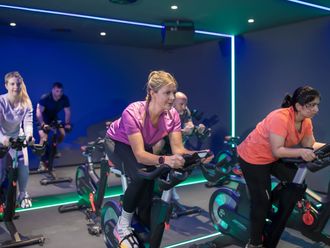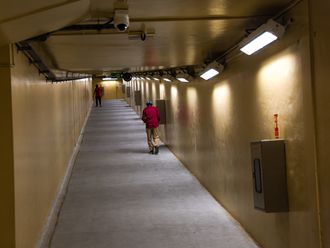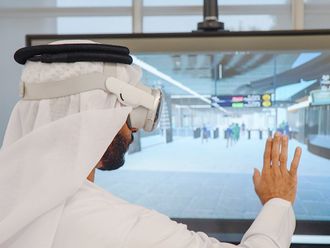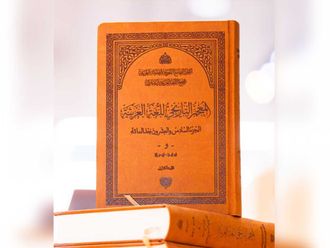
Dubai: UAE residents are very positive about their health and a majority do not believe they are obese despite facts to the contrary, latest studies show.
Radio 2: Nasreen Abdulla reports on the study of health attitudes in the GCC
* Audio supplied by Radio 2
About 75 per cent of those surveyed said they think they are not overweight, contradicting World Health Organisation (WHO) figures that show that about 67 per cent of Emirati men and 72 per cent of women are overweight.
The studies were commissioned across the Gulf Cooperation Council (GCC) by Philips Healthcare to get a feedback of the health care attitudes, needs and challenges of the region.
"This could represent a major challenge for those seeking to improve the country's health and well-being," said Dr Wael Al Mahmeed, head of cardiology and deputy chief medical officer at Shaikh Khalifa Medical City. He said there is a need for a concerted effort to raise awareness of risk factors and the need for lifestyle changes.
About 99 per cent also did not see heart disease as a threat to their health despite cardiovascular disease being the number one killer in the region.
"Rewarding as it is to see such positive perceptions in the Middle East, it is also a possible matter of concern as it could indicate a serious lack of awareness of the implications of increasing obesity and other underlying health trends in the region," Diederik Zeven, general manager Middle East, Philips Healthcare, said.
"Nearly half those surveyed believe that their health has improved in recent times, which again is counter to the scientific evidence on national trends."
While the vast majority of people believe that good health depends on personal effort, but there is little evidence of people taking action to look after their health as many are in denial about weight issues. Interestingly, increasing exercise was one of the least popular weight loss options, despite exercise reducing chronic disease, the studies said.
The studies showed that in the UAE and Saudi Arabia, women were more worried than men about conditions that might affect them in the next five years, suggesting a somewhat more realistic view of their likely future health status.
Arab Health Exhibition
The largest health care exhibition in the region opens today in Dubai with exhibitors showcasing some of their best medical technology while health care providers will seek new avenues of investment.
The exhibition and congress will be held at Dubai International Exhibition Centre from today till Thursday.
"Dubai is still a booming place and there are people willing to invest," said Simon Page, director of Life Sciences at IIR Middle east, the organisers of the exhibition and congress. "This is a key event in the region and shows the importance of Dubai," he said, noting that it has attracted large participation from India and other Asian countries.
The UAE still needs huge investments in the health care sector as the population grows and ages and is beset with lifestyle diseases. A senior Ministry of Health official has called on the private sector to contribute to the growing needs of the population.
The areas of health care where there are opportunities are fertility treatment, cancer care, elderly care, special needs, rehab and alternative medicine," said Dr Aisha Abdullah, executive director of Dubai Health Care City.
Dubai is trying to become the medical tourism destination in the region, but is hampered by shortage of qualified staff and training facilities.
Hundreds of doctors will participate in multi-track conferences from subjects as diverse as surgery to sleep diseases. The conferences are accredited by Cleveland Clinic.












